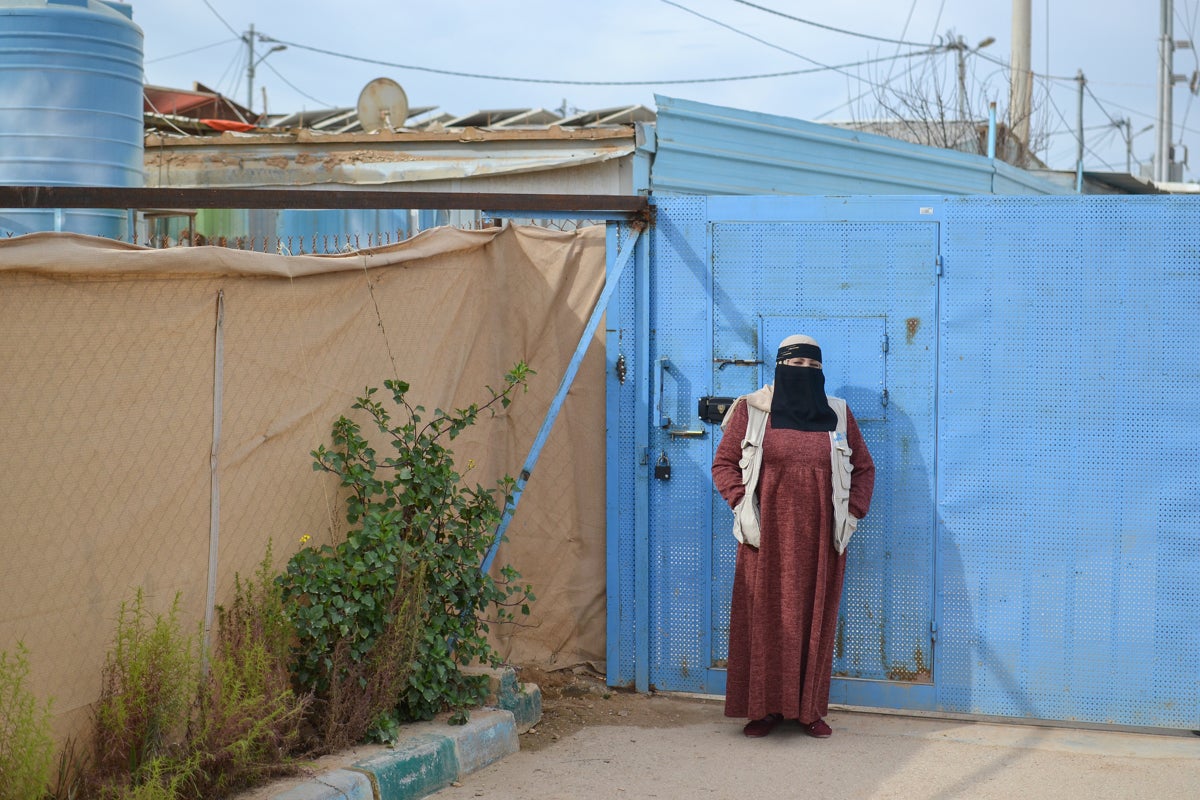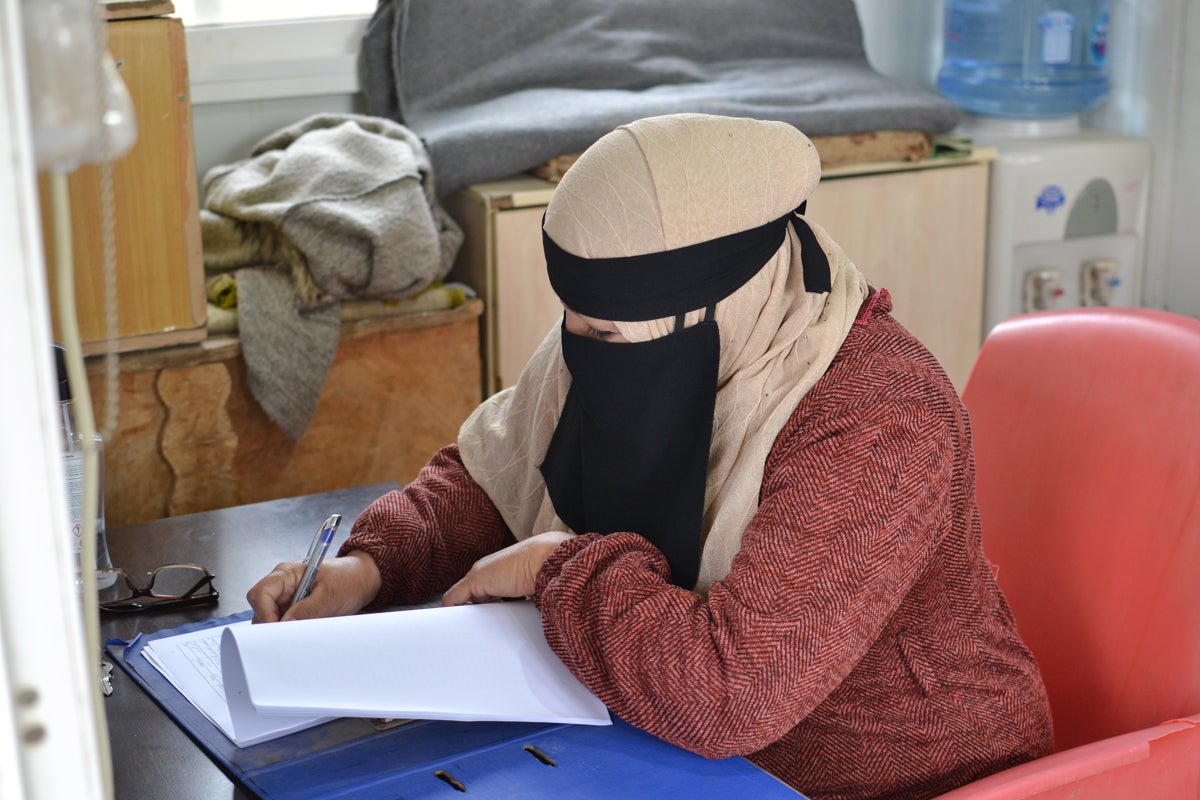Fatima's Story as a Guard and Survivor
Date:

Fatima Ali is a Syrian mother of 8 children, moved from Dara’a, Syria to Jordan in 2012 amidst the war in her country. Initially arriving without her husband, Fatima faced harsh conditions as they didn’t have access to water and electricity at that time in the camp. Fatima’s husband later joined his family in Jordan and then returned to Syria to renovate their house. Unfortunately, he couldn’t find anything left from their destroyed home and later passed away in Syria.
“The Oasis centres are widely recognized in the camp. I was never lucky enough to be accepted into any of the programmes. This year, I finally got accepted to work as a guard here. I am very glad about the opportunity,” Fatima shared. She expressed her excitement about trying something new and disregarding stereotypes and cultural constraints, embracing this chance to broaden her experiences and challenge societal norms.
In 2023, the Oasis programme began the initiative of hiring female incentive-based volunteers (IBVs) as guards in Oasis centres in Za‘atari and Azraq refugee camps. This initiative aligns with the overarching goal of the Oasis model, which includes ensuring that Syrian women living in refugee camps are better served by humanitarian action and have access to resilience-building initiatives.
Incorporating women beneficiaries as guards is a multifaceted approach to empowerment and resilience as employing female guards fosters a safer and more inclusive environment within the centres, addressing gender-specific concerns and ensuring that the needs and sensitivities of the women accessing the services are met. This initiative further promotes gender equality and empowers women to actively participate in their own protection. By breaking traditional gender roles and challenging stereotypes, it supports the work of changing social norms and perceptions regarding women ‘s roles in society, paving the way for broader inclusion and equality.

“As a result of the challenges we’ve encountered, women in the camp have developed greater resilience. They showcased strong desire for learning, acquiring certification, and starting a career. In the city where we come from, some of us had never worked. We were not used to doing or contributing much to our communities. Even if we had degrees, our roles were limited to certain tasks in life,” said Fatima.
During her time at the centre, Fatima has benefitted from digital literacy sessions, leadership and protection trainings. She was introduced to new skills that further contributed to enhancing her knowledge and resilience. “The experience at the centre has been very smooth; I luckily haven’t faced any challenges working as a guard. I learned many other things at the centre, and this has immensely helped me evolve and change and will hopefully lead to other opportunities in the future," Fatima added.
UN Women Jordan, through its Oasis program, has notably enhanced its reach, establishing a total of 22 centres, with 18 centres in host communities and 4 in refugee camps. The programme has reached approximately 90,000 individuals directly and indirectly since its inception, predominantly Syrian refugees and vulnerable Jordanian women, including a substantial number of people with disabilities.